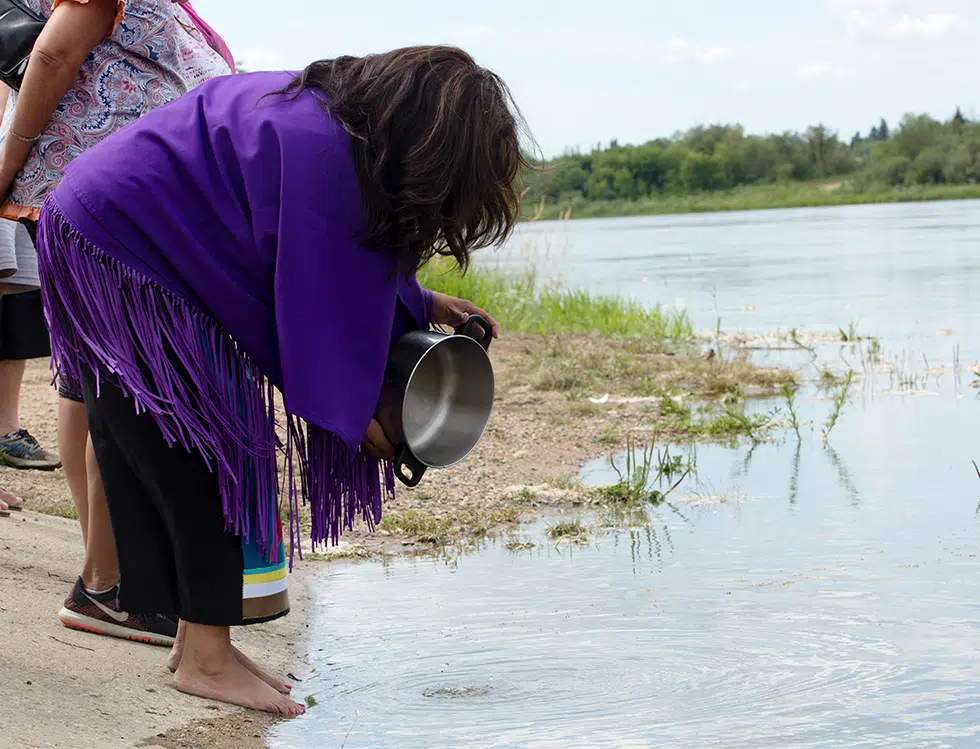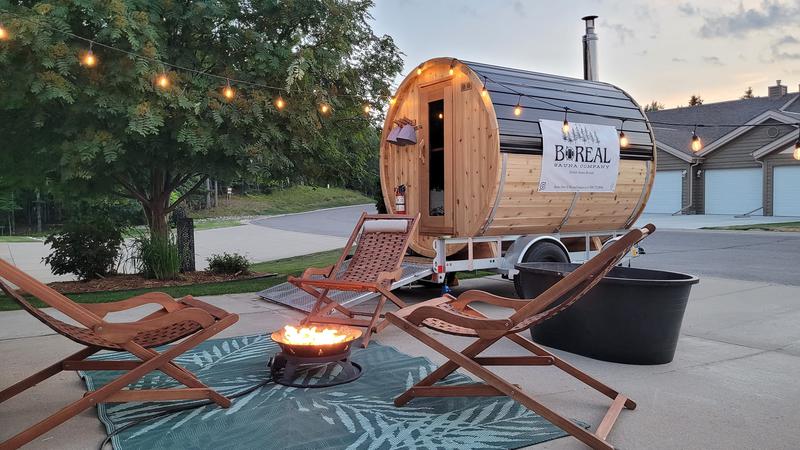
‘It’s part of our tradition to protect the environment’: First Nations react to oil spill
As stewards of the land, First Nations are playing a major role in the cleanup efforts of the July 21 oil spill.
The Federation of Sovereign Indigenous Nations organized a gathering at the boat launch at the end of 5th Street E. today, July 27. Vice Chief Kimberly Jonathan was present for the pipe ceremonies and water ceremonies.
“We did a water ceremony asking for forgiveness from the Creator for what we as humanity have done to get us to this point of suffering. Our ancestors knew this; they knew this, they knew this through our grandfathers, and they knew this through prayer that this was going to happen through prayer,” Jonathan said.
Jonathan said she wasn’t just asking on behalf of First Nations, she asked for all humanity. She poured healthy water into the North Saskatchewan River in hopes of bringing healing to the polluted waters.


